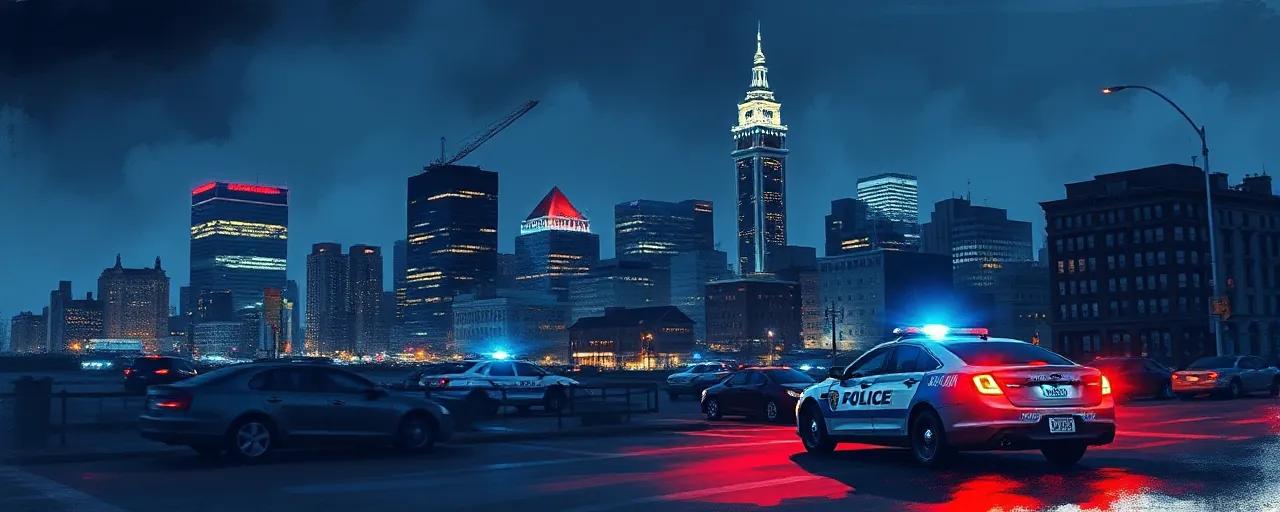A Guilty Plea in Boston’s Drug War
Dennis Wilson, a 36-year-old Boston resident and long-time member of the H-Block gang, stood in a federal courtroom on April 9, 2025, and admitted his role in a sprawling drug conspiracy. Known on the streets as 'Deuce,' Wilson pleaded guilty to charges tied to distributing fentanyl, cocaine, and crack cocaine, a plea that marks another chapter in the city’s struggle against gang-driven drug trafficking. His sentencing, set for July, could see him face up to 20 years behind bars, a stark reminder of the stakes in this ongoing battle.
Wilson’s case didn’t come out of nowhere. It stems from a multi-year investigation launched in 2021 by federal and local law enforcement, zeroing in on H-Block after a surge in shootings and drug deals tied to the gang. The operation, which swept up 10 members and associates last August, exposed a network responsible for moving over 500 grams of deadly narcotics, including fentanyl, a synthetic opioid fueling overdose deaths across urban America. For Bostonians, the case hits close to home, raising questions about safety and the grip of gangs on vulnerable neighborhoods.
Unraveling H-Block’s Reach
H-Block, born in the 1980s as the Humboldt Raiders in Boston’s Roxbury neighborhood, has long cast a shadow over the city. Re-emerging in the 2000s with a reputation for violence, the gang’s influence grew through drug markets and raw intimidation. Court documents paint a grim picture: over 20,000 doses of drug-laced paper seized, alongside fentanyl and cocaine that could devastate entire communities. One chilling detail stands out—a 2015 incident where an H-Block member shot a Boston police officer point-blank, a brazen act that cemented the gang’s notoriety.
Wilson’s role, while not at the top, was no small part. From 2022 to 2023, he joined drug deals with undercover officers, moving fentanyl and cocaine through Boston’s streets. His guilty plea, the fourth in this case, signals progress for law enforcement but also underscores how deeply entrenched these networks remain. Beyond the headlines, the case reflects a broader reality: gangs like H-Block thrive in areas where poverty and limited opportunity create fertile ground for crime, a cycle that’s tough to break.
The Bigger Picture: Drugs and Communities
Fentanyl’s rise has turned cities like Boston into battlegrounds. The drug, often smuggled from Mexico using chemicals from China, is cheap, potent, and deadly, driving overdose deaths to record highs. In 2023, U.S. authorities seized enough fentanyl at the border to kill millions, yet the flow continues, hitting urban neighborhoods hardest. Boston’s healthcare systems and addiction services are stretched thin, with families caught in the crossfire of a crisis that feels relentless. Community advocates argue for more treatment programs, pointing out that enforcement alone can’t stem the tide.
On the other side, law enforcement emphasizes disruption. The Organized Crime Drug Enforcement Task Forces, which led the H-Block investigation, coordinate across agencies to dismantle trafficking networks. Since its start in 1982, the program has seized tons of narcotics and billions in assets, targeting cartel leaders and street-level dealers alike. Yet some question whether these efforts overemphasize punishment over prevention, noting that low-level players like Wilson often face stiff sentences while bigger fish slip through. It’s a debate that keeps surfacing as courts weigh justice against rehabilitation.
What Lies Ahead
Wilson’s sentencing in July will likely bring closure to his chapter, but the broader fight is far from over. Federal sentencing guidelines, under scrutiny for years, are evolving to balance punishment with fairness. Recent reforms aim to ease penalties for low-level offenders and focus on rehabilitation, though mandatory minimums for drugs like fentanyl still loom large. For Wilson, cooperation with authorities might shave time off his sentence, a common trade-off that sparks debate about fairness and snitching in communities already wary of police.
Boston, like many cities, faces a tangled web of drugs, gangs, and violence. H-Block’s story mirrors a national trend: gangs are less organized than they once were, driven more by personal feuds than rigid hierarchies. Social media fuels these conflicts, amplifying grudges that spill into real-world bloodshed. Community leaders, law enforcement, and residents agree on one thing—breaking this cycle demands more than arrests. Investment in jobs, schools, and addiction support could shift the tide, but those solutions take time. For now, Boston braces for the next step in a fight that’s as human as it is complex.
